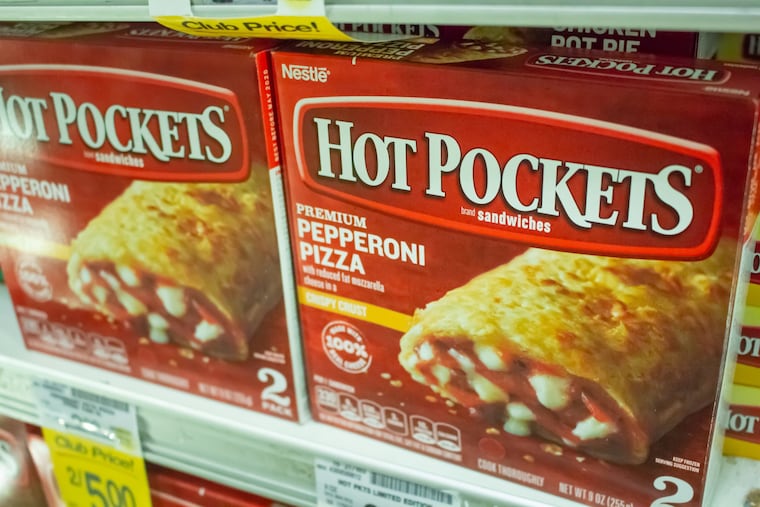A Bucks teen who was diagnosed with fatty liver disease and diabetes sues food giants over ultra-processed products
Bryce Martinez was diagnosed at age 16 with illnesses that "did not exist in children” before ultra-processed foods became common in American diets, the lawsuit says.

An 18-year-old from Bucks County is suing 11 major food manufacturers, alleging that his Type 2 diabetes and fatty liver disease were caused by ultra-processed foods, which he contends the companies intentionally engineered to be as addictive as cigarettes.
The lawsuit alleges that Bryce Martinez of Warrington is the victim of a “predatory profiteering” scheme by food giants to develop and market to children food that is harmful to health, without warning of the dangers of repeatedly eating the products.
According to the lawsuit, which was filed Tuesday in Common Pleas Court in Philadelphia, Martinez was diagnosed at 16 with fatty liver disease and Type 2 diabetes after regularly consuming Bagel Bites, Sour Patch Kids, Honey Bunches of Oats, Hot Pockets, Pepsi, Minute Maid, Slim Jims, Chex Mix, CheezIt, and Starburst, and other ultra-processed products, throughout his childhood.
These foods are full of additives such as salt, sugars, and fats, and are made primarily from substances extracted from natural foods. Studies have found that people consume more calories eating ultra-processed foods. And eating them has been connected to a long list of harms that include Type 2 diabetes, obesity, cancer, and cognitive decline.
» READ MORE: Ultra-processed foods — such as cookies, chips, frozen meals and fast food — may contribute to cognitive decline
Nonalcoholic fatty liver disease and Type 2 diabetes — the diseases Martinez has — “did not exist in children” before the advent and proliferation of ultra-processed foods, the complaint alleges.
But since the 1980s, these foods have become common in American diets, the lawsuit says. One study cited in the lawsuit estimates that by 2018, the majority of the calories that U.S. youth consumed was ultra-processed.
The lawsuits lists 11 defendants: Kraft Heinz Co., Post Holdings, Mondelez International, the Coca-Cola Co., PepsiCo, General Mills, Nestle USA, Kellanova, WK Kellogg Co., Mars Inc., and Conagra Brands.
The companies did not immediately respond to requests for comment.
The tobacco playbook
In a news conference Tuesday, attorneys with Morgan & Morgan compared the lawsuit to the litigation against tobacco manufacturers in the 1990s over the addictiveness and harms of cigarettes, which resulted in a global settlement of over $200 billion and sparked policy changes.
Rene Rocha, an attorney with the firm who represents Martinez, said that food companies used the same scientists as tobacco companies to formulate food products and increase their addictiveness.
And they also used the lessons from cigarettes sales to get the food in the hands of children.
“They used the same kind of marketing tactics that they had used to sell cigarettes to children and converted that to sell these types of foods to children as well,” Rocha said. “And unfortunately, decades later, despite warning after warning, our food environment continues to deteriorate and our children continue to get sicker and sicker.”
Ultra-processed foods have been a main focus for Robert Kennedy Jr., President-elect Donald Trump’s pick to lead the U.S. Department of Health and Human Services.
The lawsuit has been two years in the making and the timing was unrelated to the forthcoming changes in Washington, attorneys said Tuesday.
Last week, the current Food and Drug Administration commissioner, Robert Califf, testified to the addictiveness of ultra-processed foods, Rocha noted.
“The food industry has figured out there is a combination of sweet, carbohydrates, and salt that goes to our brains, and I think it’s addictive,” Califf said during a hearing of the U.S. Senate’s Health, Education, Labor, and Pensions Committee. “That’s my opinion. I think it’s the same neural circuits that are involved in opioid addiction.”